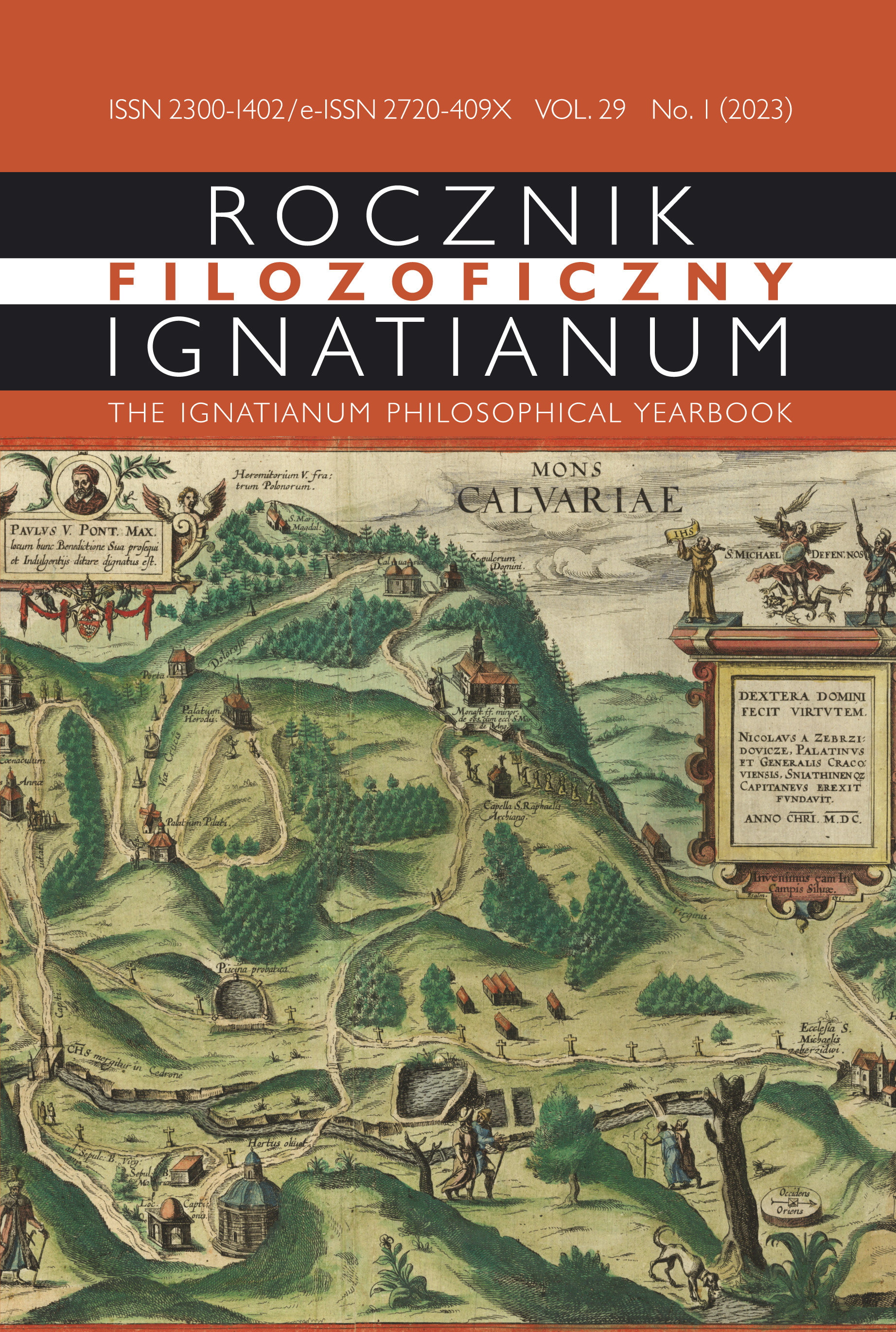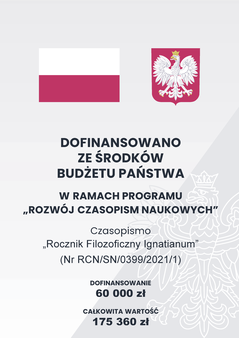Introduction
Abstract
We are offering you a new issue of The Ignatianum Philosophical Yearbook. It is almost entirely devoted to Mikołaj Zebrzydowski. The state of research on him is outlined in the first article by Elżbieta E. Wróbel and Tomasz Graff. In a separate article, the latter author also presents issues related to the development of Florian Zebrzydowski’s estate as his political importance grew at the court of King Sigismund Augustus. Special emphasis was placed on the case study method here. The author analyzes Zebrzydowski’s acquisition of property in Radocza near Wadowice, showing the prospect of the need for further research into the growth of the estate of Florian Zebrzydowski and his family. The article concludes with an appendix, including an edition in Latin and a Polish translation of the document, in which “Sigismund Augustus grants Florian Zebrzydowski the right to build a dam on the Skawa River and to run water from there through a moat across the area of the Wadowice estate to build fish ponds in the Radocza estate.”
Copyright (c) 2023 Jesuit University Ignatianum in Krakow

Dieses Werk steht unter der Lizenz Creative Commons Namensnennung 4.0 International.
Rocznik przyjmuje do druku wyłącznie materiały, które nie wchodzą w żaden konflikt interesów, żaden konflikt z prawem autorskim itp. Redakcja prowadzi działania przeciw: plagiatom, ghostwriting1, guest/honorary authorship2 itp. Autor pracy zbiorowej, który jest pierwszy na liście, bierze na siebie odpowiedzialność i ma obowiązek przedstawić wkład wszystkich współautorów. Jeśli publikacja powstała dzięki dedykowanym środkom finansowym, należy ujawnić to np. w Podziękowaniu, przypisie itp. Ew. przedruki wymagają jawnego zgłoszenia i okazania odpowiedniego pozwolenia wydawniczego. Autorzy / Recenzenci nierzetelni narażają się na reakcję właściwą stosownym instytucjom.
______
1 Ma to miejsce, gdy osoba mająca istotny wkład jest pominięta na liście Autorów czy w Podziękowaniu.
2 Zachodzi, gdy na liście autorskiej pojawia się osoba mająca znikomy/żaden udział w pracy.






